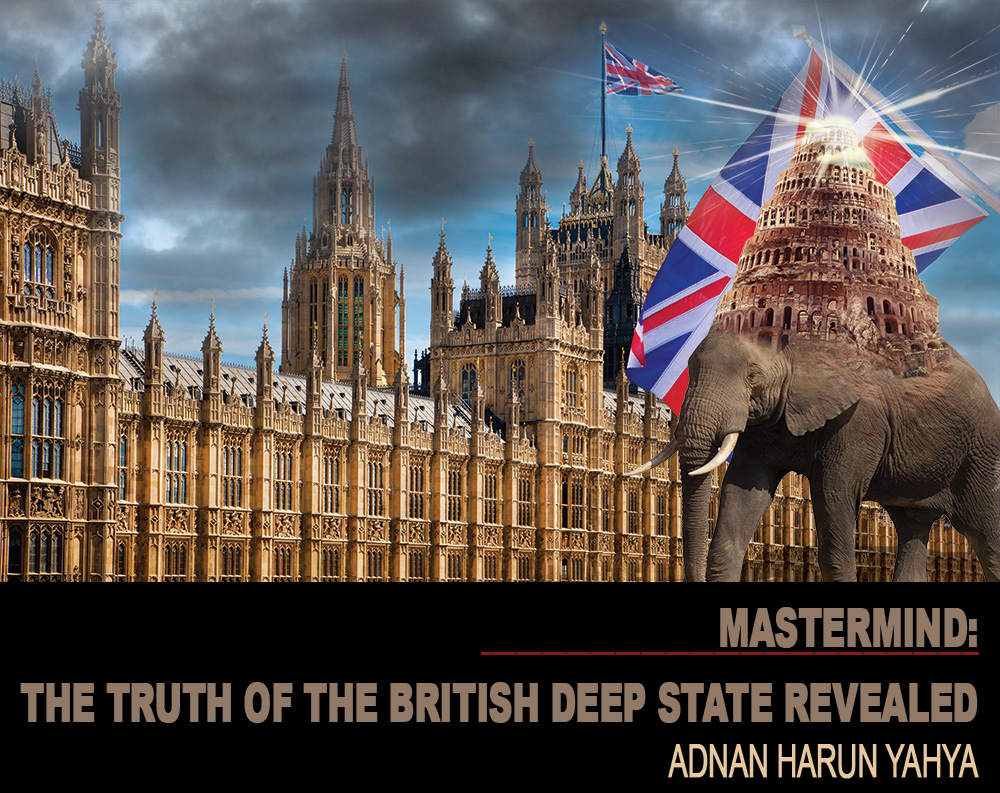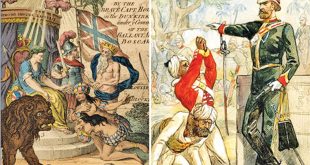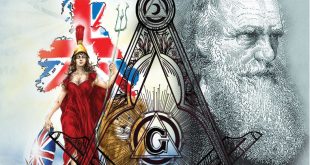 |
| Lord Palmerston, who served as the British Prime Minister in the mid 19th century |
‘Interests of Britain’ is perhaps the most important concept for the British deep state. Many might think it normal that countries work to protect their best interests. However, it should be remembered that the British deep state is a power above most of the other states. Therefore, when it is British interests in question, a mafia-like power rises, capable of doing anything without any accountability. In this respect, the ‘best interests of Britain’ can be very costly. Indeed, to promote those interests, sometimes peace is abandoned, countries are divided, terror groups are started and even wars are declared.
Some British leaders openly referred to this eerie interest-oriented approach.
Lord Palmerston who served as the British Prime Minister in the mid 19th century, explained this point of view in a speech he made in 1856:
When people ask me, …, for what is called a policy, the only answer is that we mean to do what may seem to be best, upon each occasion as it arises, making the Interests of Our Country one’s guiding principle. 7
Palmerston also said:
We have no eternal allies, and we have no perpetual enemies. Our interests are eternal and perpetual .8
Edward Grey, the then Foreign Minister of the UK, supported this view with the following words:
British Foreign Ministers have been guided by what seemed to them to be the immediate interest of this country, without making elaborate calculations for the future. 9
 |
| The British deep state has consistently tried to portray the British Monarch as a superhuman being in its propaganda methods. |
Ambassador Davies, the special advisor to former US President Truman, said the following about former British Prime Minister Churchill:
Whatever Churchill’s greatness, he was ‘first, last and all the time a great Englishman, more interested in preserving England’s position in Europe than in preserving the peace. 10
The mentality that chose British interests over peace influenced many British leaders throughout the course of history. The main reason behind this tendency is the fact that those leaders could never stray far from the effect of the British deep state, for which the most important thing was persuading the entire world to accept so-called British superiority, stemming from the faulty ideas about evolution.
 |
| The British deep state has systematically pursued its goal of obtaining control of trade routes -both West and East- and turned territories in different parts of the world into its colonies. Today, the same colonial system persists under different guises. |
Because of this mentality, Britain has always been the one country that had the greatest say in occupation policies around the world. Indeed, there are only 22 countries in the world it hasn’t occupied at some point in history. The territories once occupied by the British amount to 90% of the world’s entire lands.11Currently, 22 countries are still a part of the United Kingdom, and 14 of them are overseas. The Queen of England, Elizabeth II, is the queen of these 22 countries, plus an additional 16 countries. These countries are Canada, Australia, New Zealand, Jamaica, Barbados, the Bahamas, Grenada, Papua New Guinea, Solomon Islands, Tuvalu, Saint Lucia, Saint Vincent and Grenadine Islands, Belize, Antigua and Barbuda, Saint Kitts and Nevis, and Fiji. Even though those countries gained their independence, Queen Elizabeth II is still considered their queen.
The Queen, considered the head of the Commonwealth of Nations, appoints a governor-general to those countries as representatives. She usually appoints retired politicians or other elite names, on the advice of the Prime Minister of the respective country. The governor-general gives royal assent to legislation passed by parliament, signs official documents, officially opens and closes parliamentary sessions, revokes the parliament before the elections, and carries out other similar functions.12 In other words, Britain still enjoys serious power – and in many cases sole power – in these countries.
 |
||
| 1a. United Kingdom 1b. Guensey 1c. Jersey2. Gibraltar 3. Akrotiri and Dhekelia |
4. Bermuda 5. Turks and Caicos Islands 6. British Virgin Islands 7. Anguilla 8. Cayman Islands 9. Montserrat |
10. Pitcairn Islands 11. Saint Helena, Ascension and Tristan da Cunha 12. British Indian Ocean Territory 13. Falkland Islands 14. South Georgia and the South Sandwich Islands 15. British Antarctic Territory |
| The territories on the map are the current British Overseas Territories and the Crown dependencies. There is also another group of 15 countries (and the UK) that is called the Commonwealth realms. They also continue to be dependent on the British Monarch in various ways. These nations have the British Monarch as their Head of State. | ||
A prime example is the constitutional crisis of Australia that took place in 1975. Australian Prime Minister Gough Whitlam adopted a clear stance against the British deep state and exposed its sinister plots against his country to assert Australia’s independence. Three years after his election in 1972, Whitlam was saying Britain’s MI6 was operating against his government: ‘The Brits were actually decoding secret messages coming into my foreign affairs office.’
The bold attitude of Whitlam wasn’t left unanswered by the British deep state. The Queen of the UK, acting under the influence of the British deep state, dismissed Australian Prime Minister and dissolved the Parliament in 1975. According to the Guardian, after this incident, ‘Australian politics never recovered, nor the nation its true independence.’13 Today, Australia is still a Commonwealth realm. This example alone is enough to show how strong the British deep state hegemony can be on other countries.
 |
| Australian Prime Minister Gough Whitlam in 1975 |
Under the influence of the deep state, Britain, on the lands it occupied throughout history, has usually worked to emphasize the differences between various ethnical and religious groups. The deep state has indoctrinated them to believe that they are enemies and the concept of ‘superior race’ has always been a part of this policy. The British deep state chooses one ethnical group amongst a multitude of groups that have lived together for maybe centuries and tells them ‘you are the superior race’, and then pits them against each other. It is convinced that such a strategy will make ruling these societies easier, as fighting groups cannot come together ‘to form a single, joint power’. History is full of examples of this policy.
For instance, the horrible genocide that took place in Rwanda was not a random, regional occurrence. It wasn’t independent of the British deep state either.
The policies of the British deep state usually focus on creating division, fueling existing division or creating artificial divisions. With regards to other nations, the deep state has always sought to ‘maintain sharp clashes, make up divisions if none exist, and fuel the existing but insignificant disagreements’. The ones that fail to conform to these policies are eliminated through various methods if necessary, because as explained above, the most important thing for the ones behind these plans is the ‘interests of Britain’.
 |
|
| 1. House of Lords at the British Parliament | 2. The house of the British Parliament, Westminster, and Westminster Bridge |
| The current British Monarch, Queen Elizabeth II, is considered the Head of the Commonwealth of Nations and appoints a governor-general to these countries as her representative. In other words, Britain still enjoys significant power over these countries. | |
Footnotes:
3. John Daniel, Two Faces of Freemasonry, Longview: Day Publishing, 2007, p. 121
4. “Charles Darwin to receive apology from the Church of England for rejecting evolution”, The Telegraph, September 13, 2008, http://www.telegraph.co.uk/news/religion/2910447/Charles-Darwin-to-receive-apology-from-the-Church-of-England-for-rejecting-evolution.html
5. Albert G. Mackey, “Charles Darwin and Freemasonry”, An Encyclopedia of Freemasonry, Vol. III, New York: The Masonic History Company, 1921
6. John J. Robinson, Born in Blood, M. Evans & Company, 2009, p. 285
7. Palmerston to Clarendon, July 20, 1856, quoted in Harold Temperley and Lillian M. Penson, Foundations of British Foreign Policy from Pitt (1792) to Salisbury (1902), Cambridge: Cambridge University Press, 1938, p. 88
8. Dominic Raab, “Time for a foreign policy that puts Britain first,” in After the Coalition, (Biteback Publishing, 2011), The Telegraph, http://www.telegraph.co.uk/news/uknews/defence/87714/Time-for-a-foreign-policy-that-puts-Britain-first.html
9. R.W. Seton-Watson, Britain in Europe, p. 1.; Henry Kissinger, Diplomacy, pp. 95-96
10. Robin Renwick, Fighting with Allies: America and Britain in Peace and War, Palgrave Macmillan, 1996, p. 89
11. Jasper Copping, “British have invaded nine out of ten countries – so look out Luxembourg”, The Telegraph, November 4, 2012, http://www.telegraph.co.uk/history/9653497/British-have-invaded-nine-out-of-ten-countries-so-look-out-Luxembourg.html
12. “Governor-General of Australia”, Wikipedia, https://en.wikipedia.org/wiki/Governor-General_of_AustraliaDocument1
13. John Pilger, “The British-American coup that ended Australian independence”, The Guardian, https://www.theguardian.com/commentisfree/2014/oct/23/gough-whitlam-1975-coup-ended-australian-independence
 British Deep State MASTERMIND: THE TRUTH OF THE BRITISH DEEP STATE REVEALED
British Deep State MASTERMIND: THE TRUTH OF THE BRITISH DEEP STATE REVEALED



